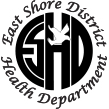Secure, Monitor, Destroy

Secure:
Why is it important?
Properly securing your prescription medication is a vital part in reducing overdoses. Securing your medication can drastically decrease the chances that someone in your household will overdose “OD” on a prescription opiate.
Every year thousands of children are hospitalized—and some die—after taking medicine not meant for them. Teens share stolen prescription drugs at "pharm parties" and toddlers are tempted by colorful pills that look like candy.
Why should you secure your medication?
- Prescription opioid drugs contribute to 40 percent of all US opioid overdose deaths.
- The US makes up 5 percent of the world’s population and consumes approximately 80 percent of the world’s prescription opioid drugs
- More than 50% of opioid misuse starts with what’s in the home. Your medicine cabinet could be a gateway to drug addiction.
Talk with your children: If your child is on controlled prescription medication, such as those used to treat ADHD, depression or anxiety disorder, it is important to monitor the dosages and refills. Set clear rules, such as, not sharing their medications with others and to take exactly as prescribed. Sharing prescribed medication is dangerous and illegal. Many teens believe that prescription drugs are much safer than illegal street drugs because they are prescribed by a doctor.
More tips for securing your medication:
- Keep your medication hidden and out of sight from children.
- Make sure your medication is high enough so that your pet can’t get into it.
- Invest in a lockbox/safe so that your medication is always secured
- Never share your medication
ESDHD has a limited supply of Medication lock boxes that allow residents to safely store medications in their home. Using a locked storage system is easy to use and can help prevent drug overdoses. Please call Beth Capobianco, RN at the ESDHD 203.481.4233 or email bcapobianco@esdhd.org if you are interested in obtaining a free locked box.
For more information on how to properly lock your medication in your home, visit: https://www.fda.gov/ForConsumers/ConsumerUpdates/ucm272905.htm
Monitor:
Why is it important?
Simple answer; the more medications you take, the easier it is to lose track of them. Monitor your medications to ensure that if any medications are missing you will be able to take action immediately.
How to monitor your medication:
- Take note of how many pills are in each of your prescription bottles or pill packets; keep track of refills.
- Use a pill/tablet organizer to ensure that you are taking the right amount of medicine each day.
- Regularly check to see if any medication is missing. If you are missing doses this should be a red flag to you.
- Keep a daily medication log, so you know how much medication should be remaining.
Destroy: Medications play an important role in treating many conditions and diseases, but when they are no longer needed it is important to dispose of them properly to help prevent drug related accidents and intentional misuse.
According to the Partnership for a Drug Free America
- 6 out of 10 teens agree that prescription drugs are easy to get from medicine cabinets.
- 4 out of 10 teens think that prescription drugs are safer to use than illegal drugs.
Ways to destroy unwanted medications
DON’T RUSH TO FLUSH! Flushing medications down the toilet or sink causes water pollution, impacts drinking water, and has adverse effects on septic systems, fish, and aquatic life.
